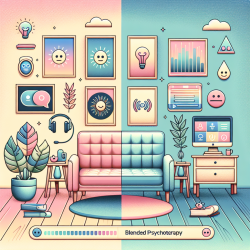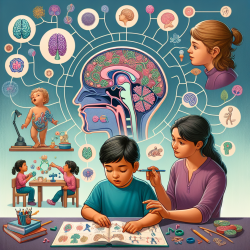As practitioners in the field of mental health, we are continually seeking ways to improve the care and outcomes for our patients, particularly those with severe mental illnesses (SMIs). The recent scoping review titled Feasibility, Adherence, and Effectiveness of Blended Psychotherapy for Severe Mental Illnesses provides valuable insights that can enhance our therapeutic practices.
Understanding Blended Psychotherapy
Blended Psychotherapy (bPT) combines traditional face-to-face therapy with digital interventions. This approach aims to leverage the strengths of both modalities to enhance treatment effectiveness and accessibility. The review indicates that bPT is feasible and shows promising results in terms of patient adherence and preliminary effectiveness.
Key Findings and Implementation Strategies
Here are some actionable insights from the review that you can implement in your practice:
- Feasibility: The review found that bPT is generally feasible for patients with SMI. This suggests that integrating digital components into your therapeutic approach could be well-received by your patients.
- Adherence: High adherence rates (0% to 37%) were reported, which is encouraging compared to other digital interventions. Consider using digital tools to monitor and encourage adherence.
- Effectiveness: While evidence on effectiveness is still emerging, several studies showed significant positive outcomes. Incorporate digital components that provide psychoeducation, symptom monitoring, and therapeutic exercises to complement face-to-face sessions.
Encouraging Further Research
Despite the promising findings, the review emphasizes the need for further research to establish the long-term effectiveness of bPT for SMI. As practitioners, you can contribute to this growing field by:
- Participating in or initiating research studies on bPT.
- Sharing your experiences and outcomes with the broader mental health community.
- Staying updated with the latest research and developments through conferences, webinars, and publications.
Conclusion
Blended Psychotherapy offers a promising avenue for enhancing the treatment of severe mental illnesses. By integrating digital tools into your practice, you can potentially improve patient adherence and outcomes. Let's continue to explore and innovate in our approaches to mental health care.
To read the original research paper, please follow this link: Feasibility, Adherence, and Effectiveness of Blended Psychotherapy for Severe Mental Illnesses: Scoping Review.










